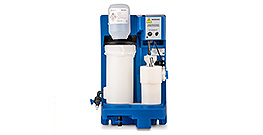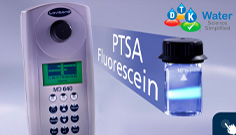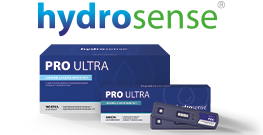A new proficiency scheme for laboratories testing hospital waters for environmental mycobacteria, and species such as Mycobacterium chimaera, Mycobacterium avium and Mycobacterium intracellulare which do not cause tuberculosis but may cause infection in patients with underlying disease – is to be launched in April 2019. The scheme, organised by PHE’s Food and Environmental Proficiency Testing Unit (FEPTU), aims to raise awareness of laboratory testing methods, highlight challenges in isolation, and assist with interpretation of results.
Environmental mycobacteria may be of concern when they occur in the final rinse-water of instruments, such as endoscopes, that are used for diagnosis. These waters need to be free of environmental mycobacteria and therefore regular testing for environmental, non-pathogenic mycobacteria is a well-established practice [1].
More recently, a specific type of hospital water (from heater-cooler units) has been associated with non-tuberculous mycobacteria. M. chimaera, M. avium and M. intracellulare are slow-growing non-tuberculous mycobacteria (NTM) within the Mycobacterium avium complex (MAC). M. chimaera was originally thought to be less pathogenic than other species within MAC; however, since 2011, cases of invasive infection caused by M. chimaera have been reported in several European countries, including the UK, in patients who had previously undergone cardiac surgery.
Following a national UK investigation to assess the risk of invasive infection in cardiothoracic surgery, a significantly elevated risk was identified in those post-surgery compared to the general population [2]. In 2015, the European Centre for Disease Prevention and Control (ECDC) issued a protocol for case detection, laboratory diagnosis and environmental testing of M. chimaera infections potentially associated with heater-cooler units used in cardiovascular surgery [3]. The risk of infection following surgery remains low in the UK.
PHE supports hospitals in their environmental monitoring of endoscopy and heater-cooler waters for environmental mycobacteria and NTMs in several ways; this includes: provision of a hospital water testing service, provided by the Food, Water and Environmental Laboratory Network (FW&E): provision of laboratory control strains by the National Collection of Type Cultures (NCTC); and, now, through the provision of a proficiency testing scheme from the Food and Environmental Proficiency Testing Unit (FEPTU).












